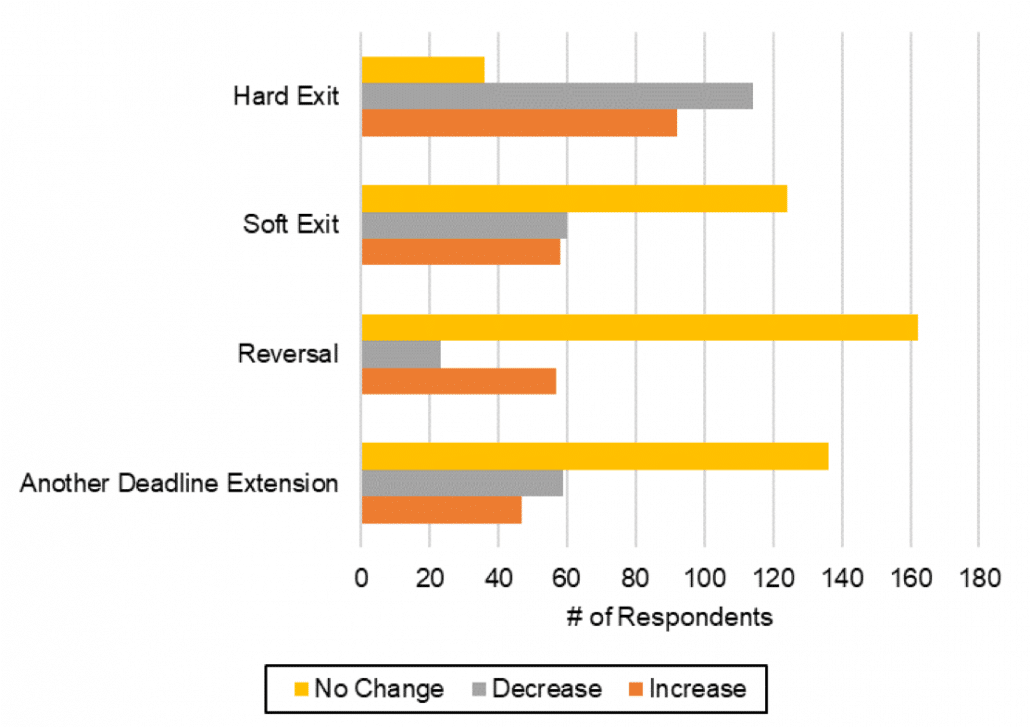UK Labs Report Product Purchase Delays Due to Brexit
The long road to a resolution of the Brexit situation appeared to be nearing an end earlier this year, with the deadline set for March 29 to finalize how Britain would exit the EU. A “hard” Brexit, the case if no EU-Britain agreement is reached, would remove Britain from the EU’s single market among other consequences. A “soft” exit would result in Britain remaining part of the single market, but not an EU member. With a government stalemate in Britain, the EU agreed to extend the deadline until October 31, though a deal may come sooner.
Despite the new deadline, concerns at Britain’s scientific laboratories regarding a hard exit have been building since Brexit was first approved in 2016. As described in Nature and Science, uncertainty has centered on delays in laboratory supply shipments, increased cost for such supplies, access to EU research funds, and new constraints for scientific collaborations and travel.
Laboratory supply deliveries and purchases, both imports and exports, could be delayed due to changes in shipping requirements, as well as general disruptions to manufacturers’ supply and value chains. Consequently, the price of laboratory products could also rise. According to consulting firm PWC, costs to companies fall into three categories: new tariffs and quotas, greater administrative requirements and implementation of rules affecting non-tariff barriers (e.g., environmental standards). Although many companies have already taken precautionary procedures such as relocating manufacturing out of Britain, major lab suppliers such as lab product distributors SLS and VWR have notified customers that delays may be inevitable.
To investigate the effects of the new Brexit deadline on lab product spending, IBO conducted an online survey of 242 laboratory personnel (see demographics below) in the UK during the week of May 7. Participants were solicited from the Science and Medicine Group’s Science Advisory Board, a community of verified life science experts. According to survey results, lab product vendors have communicated with more than half of respondents about possible Brexit delays in receiving orders.
2019Lab Spending
UK laboratories did take action in regard to lab product purchases in anticipation of a March 29 hard exit, according to survey results. Sixty-two percent of scientists surveyed indicated that their labs’ spending had been impacted. Most affected were purchases of lab reagents and consumables, with 74% of survey respondents stockpiling such products.

Impact on Lab’s 2019 Planned Spending by Possibility of March 29 Brexit
However, the effect was still notable but less pronounced for major capital equipment (defined as costing more than $5,000) and smaller capital equipment (defined as costing less than $5,000) purchases. Over one-third of survey respondents who reported an effect on lab purchases cited delayed purchases of capital equipment. And while scientists stockpiled reagents and consumables, far less concentrated on preventative measures for equipment purchase. A combined 34% accelerated their purchases of capital equipment. In contrast 38% of respondents indicated that the deadline had no effect on any lab purchases.
Respondents were subsequently asked how the extension of the deadline to October 31 has affected their labs’ spending plans. Nearly half, 49%, stated that their laboratory product spending decisions are still being impacted. Of these respondents, stockpiling of reagents and consumables was once again the dominant effect, cited by 80% of respondents. As with the decisions made before the March 29 deadline, major capital expenditures were more likely to be delayed than smaller ones. But compared to pre-March deadline behavior, fewer respondents accelerated capital expenditure purchases.

Impact on 2019 Spending of Expected October 31 Brexit
Out of respondents that were affected, 53% identified themselves as academic/university labs. The next largest category was biopharmaceutical/biotech companies at 13%.
2020 Lab Spending
In 3 of the 4 possible Brexit scenarios—another delay, reversal, or a soft exit—the majority of scientists in the survey expect no change in their lab product spending in 2020 versus this year. Only if there is a hard exit would scientists expect a change, with 47% foreseeing a decrease in lab spending. However, 38% would expect their labs to increase spending.

Expectations of Outcome Following Extension of Brexit Deadline to October 31
In the case of a soft exit, as more than a third of respondents anticipate, over 50% of respondents expect no change in their lab product spending next year. The percentage increases further, up to 67%, if there is a reversal of the Brexit decision. Even in the event of a delay beyond October 31 in finalizing the terms of Brexit, 56% of scientists surveyed anticipated no spending changes.

Expected Impact on Lab Spending 2020 vs. 2019 by Brexit Outcomes
As the survey results reveal, British labs are in fact preparing for Brexit, most evidently a hard exit, prioritizing their purchasing this year on reagents and consumables. But for 2020, lab purchases in general are unlikely to experience any change. However, as the final resolution to the Brexit situation remains unpredictable and complicated, the plans for next year’s lab spending could change yet again.




